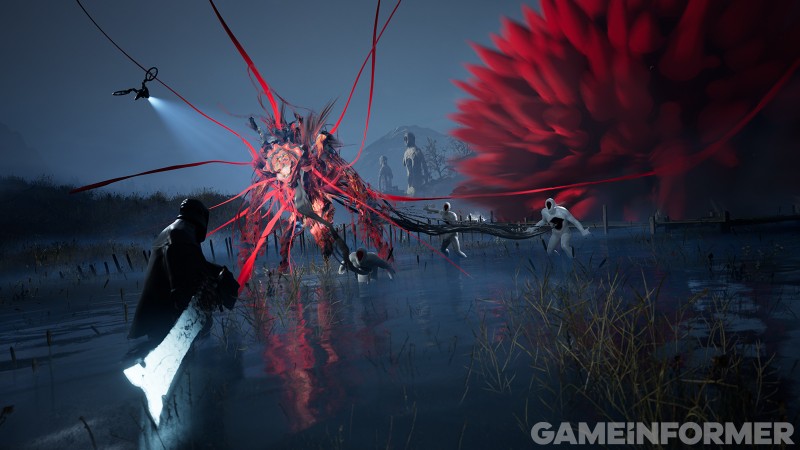
Platform:
PlayStation 5, Xbox Series X/S, PC
Publisher:
Nacon
Developer:
Rogue Factor
Release:
2023
Hell is Us represents a big step for Montréal-based studio Rogue Factor and creative director Jonathan Jacques-Belletête. It’s the developer’s first original IP after releasing Mordheim: City of the Damned and Necromunda: Underhive Wars, stepping out from the massive Warhammer license, creating something the team can call its own. Jacques-Belletête departed Eidos Montréal after spending just short of 12 years with the company, where he found success as the art director on Deus Ex: Human Revolution and Mankind Divided and had just completed the art direction design for Marvel’s Guardians of the Galaxy before leaving. Now stepping into an even bigger role to develop Hell is Us, he is shaping the vision of this dark new adventure.
I recently spoke with Jacques-Belletête about the new project, an action/RPG with a realistic conflict setting the stage for a calamity with paranormal ramifications. We discussed the narrative’s dark underlying themes, the main character and his connection to the world, and how the team wants to make experiences players can explore without the game handing you all of the answers.
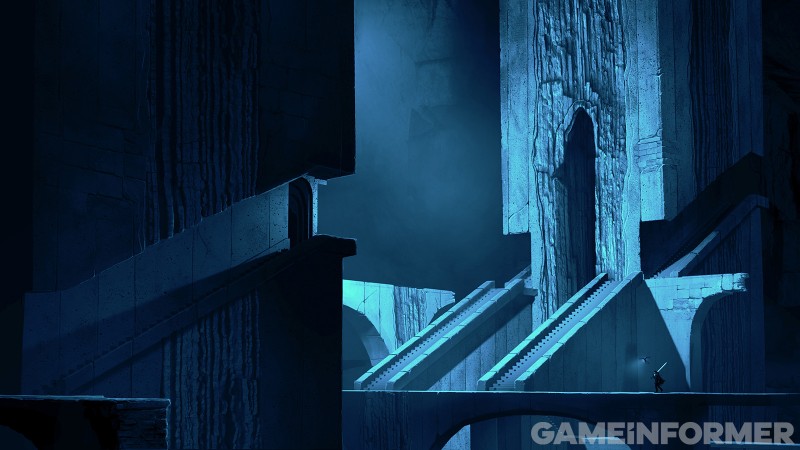
Finding Home Again
The main character of Hell is Us, who Rogue Factor hasn’t officially named yet, was born in the unnamed country at the center of the story. Jacques-Belletête says this nation, surrounded by mountains, has largely been isolated from the rest of the world for close to 2,000 years. It was officially labeled a hermit state at the creation of the United Nations following World War II. Fast forward to the 1990s when Hell is Us takes place, and the country is ruled by the “iron fist” of a dictator.
The ‘90s was chosen because it was a time of turmoil in several nations around the world such as Kosovo, Bosnia, and Rwanda, whose people faced armed conflicts, wars for independence, and genocide. “The main theme of the game is that human violence and barbarity is basically a perpetual cycle that’s largely fueled by human emotions and human passions,” Jacques-Belletête says. “Like, the cause of our worst atrocities and our worst miseries, right? It’s all based on human passions and human emotions.”
According to Jacques-Belletête, it’s a subject the team doesn’t take lightly. But while war and its terrible results are central to the overall tapestry of Hell is Us, it’s more a foundation for the battle against supernatural beings, which surface as the game’s main aggressor.
Jacques-Belletête brings up stories of other territories and nations that have faced similar hardships and went underreported. The topic of discussion briefly changed to the Russian invasion of Ukraine and the strife and pain it’s causing an entire nation and beyond at the time of writing.
“What is happening in Ukraine right now happens every day, in tons of other places. That's the reality of it. And that's the sad thing of it. This absolute madness and horror, this violence. These are the things we do at each other,” he says. “What we don't realize is that this is a reality for so much of that of the population of the Earth. We're so sheltered here. We have no idea what it means. […] The library of horrors is long.”
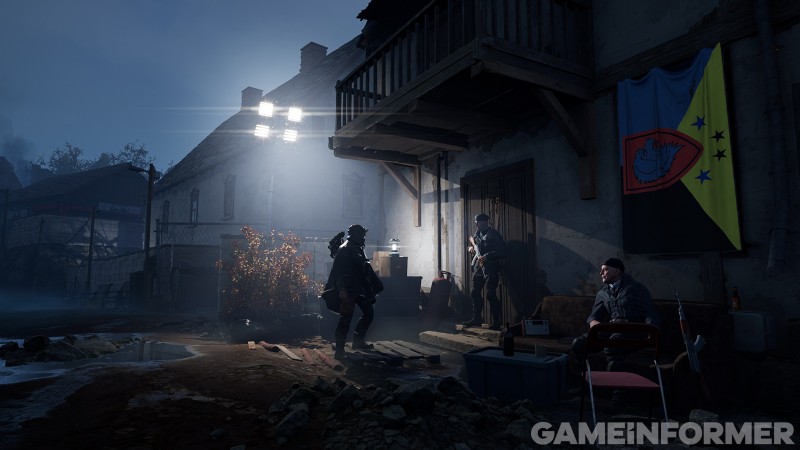
The main character won’t be taking a side in the game’s ongoing civil war, nor will you be solving the crisis. “One thing’s for sure, the game is not about saving the country from the civil war,” Jacques-Belletête says. “There’s no such thing as, you know, one dude who walks into a civil war situation, and that the ending is, ‘I’ve saved it. I’ve stopped it myself.’ It wouldn’t make any sense.”
The boy grows up while shuffled around from place to place, filtering through the Canadian foster family system as a kid, but never settling on a place or family that feels like home. He finds the structure he was missing from a stable family life after joining the military. While enlisted, he’s sent on various peacekeeping missions around the world, often looking for a way back to the hermit state.
In his years away from his homeland, he tries many times to find a way back, futile attempts to meet the parents who gave him away and settle his soul that’s burning for answers. Answers for questions like who his parents are, why they abandoned him, and why they smuggled him out of the country. The civil war forms an opportunity, a tiny crack in the country’s impenetrable shell. He sees his chance to find his parents and ask them all the questions that have burned inside him for so long.
Learning of a huge squad of peacekeepers being sent to a neighboring country because of the conflict, the man manages to join the mission, not to help, but to slip back into the secretive land in which he was born. “So, he’s not part of the units that are allowed to get inside,” Jacques-Belletête says. “However, the man plans for this. His scheme is to go AWOL on a moonless night and sneak across the border.”
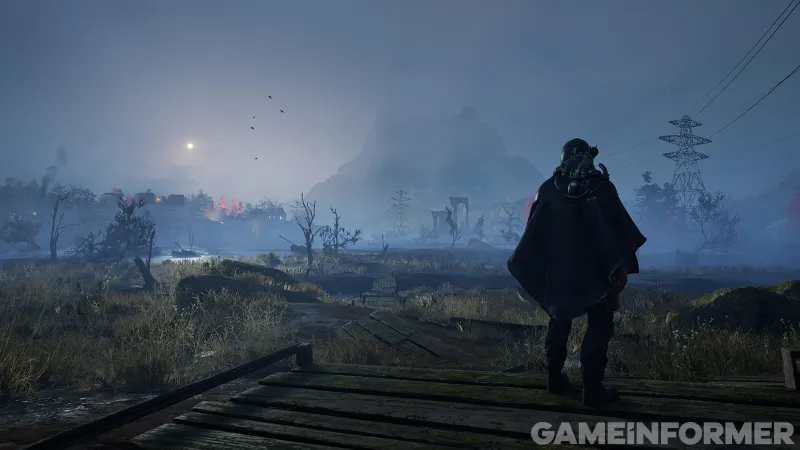
Finding Adventure In A Forbidden Land
After changing into more adventurous garb, the man steps foot inside his home country for the first time in decades. This is where Hell is Us begins. This protagonist has no idea where to look for his parents or anyone who may know their identity. And little does he know that a supernatural presence has taken hold and will be the true enemy.
Jacques-Belletête wants to leave behind what he calls “silver-plattering.” He doesn’t want Hell is Us to explicitly offer where to go, who to talk to, or what to see. “We’re putting back in the hands of the players the responsibility to figure out not just what they need to do, but also how to do it, how to find it,” he says.
He compares this loosening of guidance to a series of discoveries in The Legend of Zelda: A Link to the Past. It begins with an old man telling Link about his missing son who used to play his flute in the forest. Retracing pieces of the story to locations in the world, you can find the stump where the boy would play for the animals and see his spirit playing for the gathered wildlife. Later, after acquiring the flute, you can play it to call on a bird, whisking Link away to different points on the map as the game’s clever version of fast travel. Nothing ever tells you to specifically do that but talking to the man, listening to and learning his son’s story, and piecing those factors together makes connecting some simple dots into a revelatory moment.
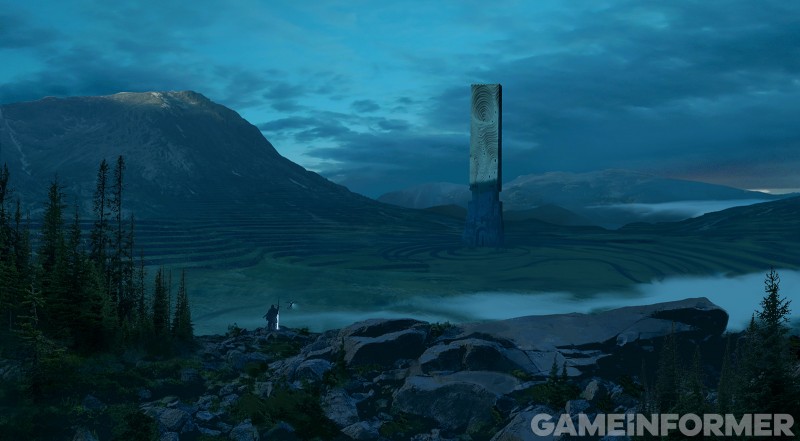
To give players a sense of exploration and discovery, Rogue Factor relies on a balance of environmental design paired with usable information gathered from characters or other means within the world. Jacques-Belletête sees it as a way of propping up the importance of art and level design again, which in his eyes lack purpose in an age of mechanisms that guide players exactly where to go.
“You start realizing that the work of the level designers and the artists, as beautiful as environments can be, they serve no other purpose really than just being pretty,” Jacques-Belletête says.
Even the characters giving quests in other games often feel hollow to him, but Rogue Factor is working to make them worth listening to in Hell is Us.
